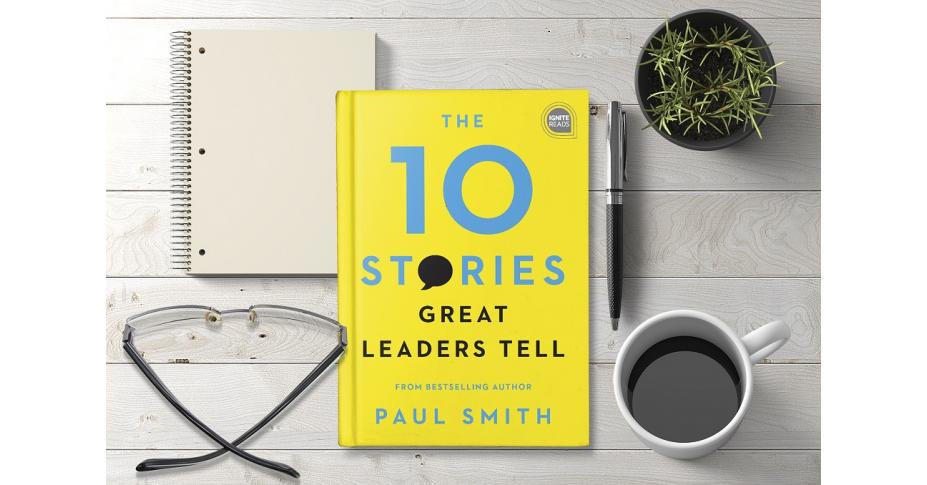Tell Your Stories
Good leaders ask, “How do I tell better stories?” Great leaders ask, “What stories do I need to tell?”
Will you be a more effective leader if your stories are well-crafted and delivered? Of course. But the truth is, the story you tell is more important than how you deliver it. You're probably not an actor or a public speaker. You're a leader. Your audience doesn't expect perfection. They expect you to be decisive and helpful.
If you tell a story that helps them do their job better, but you forget the opening line, stutter a little, or even butcher the surprise ending, your audience will still learn from it. But if you tell them an irrelevant or unhelpful story even though you deliver it in a way that would make a Shakespearean actor proud, your audience will never forgive you for wasting their time.
So, what stories do you need to tell?
After conducting over 300 one-on-one interviews with CEOs, leaders, and executives in 25 countries around the world about their use of storytelling in business, here’s my list of the most important ten stories any leader needs to be able to tell at a moment’s notice.
1. Where we came from (our founding story) – Nobody ever quit their job and started a company for a boring reason. Find that reason for your company’s founder and tell that story. It will infect everyone with the same sense of purpose and passion.
2. Why we can’t stay here (a case-for-change story) – Human beings are creatures of habit. Change is an unwelcome visitor. This story provides the rationale for why change is needed and a real human reason to care.
3. Where we’re going (a vision story) – A vision is a picture of the future so compelling, people want to go there with you. And the best way to paint that picture is with a story about what that future will look like when you achieve it.
4. How we’re going to get there (a strategy story) – Strategy is how you’ll get from where you are now to where you want to be. In other words, strategy is a journey. And what better way to describe a journey than a story?
5. What we believe (a corporate-values story) – Values are only words on a piece of paper until they’re tested. This is a story of one of those awkward or uncomfortable moments one of your company values was put to the test.
6. Who we serve (a customer story) – There’s no substitute for getting out of the office and meeting your customer face-to-face. And for the majority of your organization that will never do that, this is a story you tell about one of your customer interactions so they’ll know that customer as well as you do.
7. What we do for our customers (a sales story) – A story about what you did for one of your customers that’s so impressive other people will want to buy what you’re selling as well.
8. How we’re different from our competitors (a marketing story) – You probably have a list of reasons why your product or service is better than your competition. Well, guess what? Nobody remembers your list. But they will remember the story you tell them that shows them those differences as they play out in a real situation.
9. Why I lead the way I do (a leadership-philosophy story) – No series of buzzwords on a piece of paper could ever articulate the subtle, human, and complex nature of your personal leadership philosophy. If you want people to understand how to expect you to lead, you need to tell them a story about what shaped the leader you’ve become.
10. Why you should want to work here (a recruiting story) – Every company claims they offer competitive pay and benefits, challenging work, and great advancement opportunities. If you really want to attract the best talent, you need real stories about why it’s so awesome to work there.
If you want to see an example of each of these stories, plus a few tips on how to come up with your own, you'll find them in the new book, The 10 Stories Great Leaders Tell.
Good luck with your stories.
-Guest post from Paul Smith, author of The 10 Stories Great Leaders Tell.

